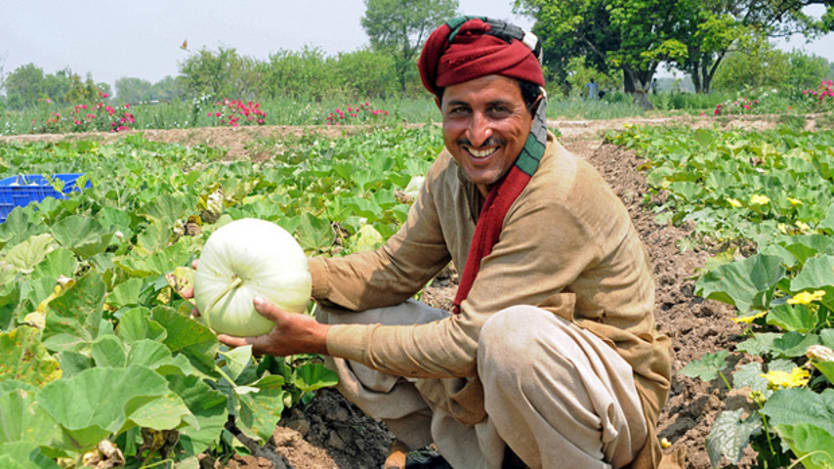
Given the impact of nutrition on a person’s health and an economy’s vitality, you may think that convincing people to opt for a better diet can’t be too difficult. Think again.
Food products can reach such an iconic status due to celebrity endorsements and strategic marketing, for instance, that some people will favor them over fresh farm produce.
“Big companies like Coke have made huge investments in their products and those are the products that are seen in some ways as, ‘If I can afford something, then that's what I do: I drink Coke,’ because that is seen as a status symbol,” said Ladd, the senior technical director for nutrition at ACDI/VOCA. “How many times do you see spinach or a papaya as a status symbol? ‘Oh, if I have enough money, I’ll buy it’ — that's just not what you do because nobody is marketing papayas, because there's not a company that earn off papaya in that sense.”
See more #FeedingDev articles:
• Food justice is about more than food security and nutrition
• How the EU stepped up its game on nutrition
• Food security: 3 major private sector approaches
Nutrition, she added, is a “harder sell” because you won’t see the impact, such as obesity or heart disease, until after some time.
So how do you improve messaging around nutrition? Here are some excerpts of my conversation with Ladd about that topic.
What can be done to better sell nutrition?
We have to figure out a way to get the private sector involved so that it's marketable for them. … But you have to work at the lower level [of the supply chain] because at the national level, you don't have anyone as a big company that's selling fruits and vegetables. You've got to get it down into that level where people are eating it, so down to input supplier.
You have to find those players in the private market that giving out those nutrition messages would be of positive impact with them. They may not care about nutrition but if they're giving a nutrition message, for example, input suppliers, if they give out a message about the importance of a diverse diet, then people buy more seeds from them and more variety of seeds; that helps their business.
How can the development community engage the private sector in nutrition education?
I think it depends on the program. Because for some programs, it's natural that you're engaging with the private sector; sometimes it's not. Most agriculture programs are engaging the private sector somewhere along the program, whether it's seed inputs or fertilizer, whether it's higher up, in exports. I think once you get higher up, unless you're doing fortification, I think it's harder to do.
For example, in Ethiopia, we're working with coffee and if there's no nutritional benefit to coffee, exporters are not going to give out nutrition messages because there's nothing that's going to help them increase their business. But if you work with other input suppliers, or if you convince one of the traders that if you work with people on their diet as more diverse, they're healthier and they're more likely to work on their farms and you're going to get more coffee.
Grocery stores [can also give out messages]. We don't typically work with grocery store chains but sometimes we do because they can be a market, say, if we're doing horticulture or fruit projects. They may give out nutrition messages but they do it because they increase their sales of fruits and vegetables. And if people come into the market to get fruits and vegetables, obviously they're going to buy other things.
Is it safe to say that you can incorporate nutrition messaging in every stage of the supply chain?
I definitely think it can be. … It's not only how do we influence and educate our farmers that are growing wheat, [it’s also the question:] Can we give messages through input suppliers who are then selling other seeds in addition to wheat? We can work with millers to fortify wheat flour so that they're giving micronutrients. ... You also have millers that are creating baby foods or baby formulas or baby cereals that you want to make sure are fortified for babies and appropriately marketed and those are going to be most likely more in the big cities versus smaller areas. There are different places, I think, on every single value chain where you can do nutrition messaging.
Want to learn more? Check out Feeding Development's campaign site and tweet us using #FeedingDev.
Feeding Development is an online conversation hosted by Devex in partnership with ACDI/VOCA, Chemonics, Fintrac, GAIN, Nestlé and Tetra Tech to reimagine solutions for a food-secure future from seed and soil to a healthy meal.








